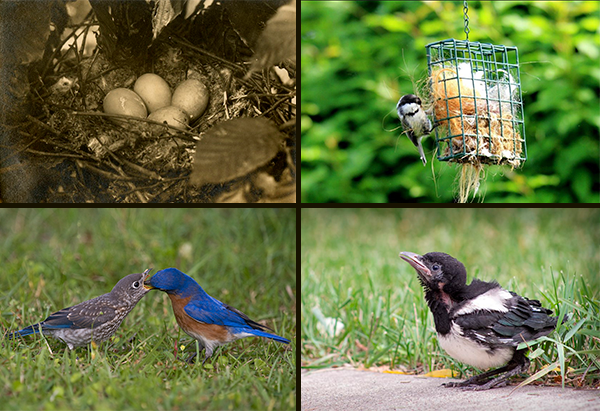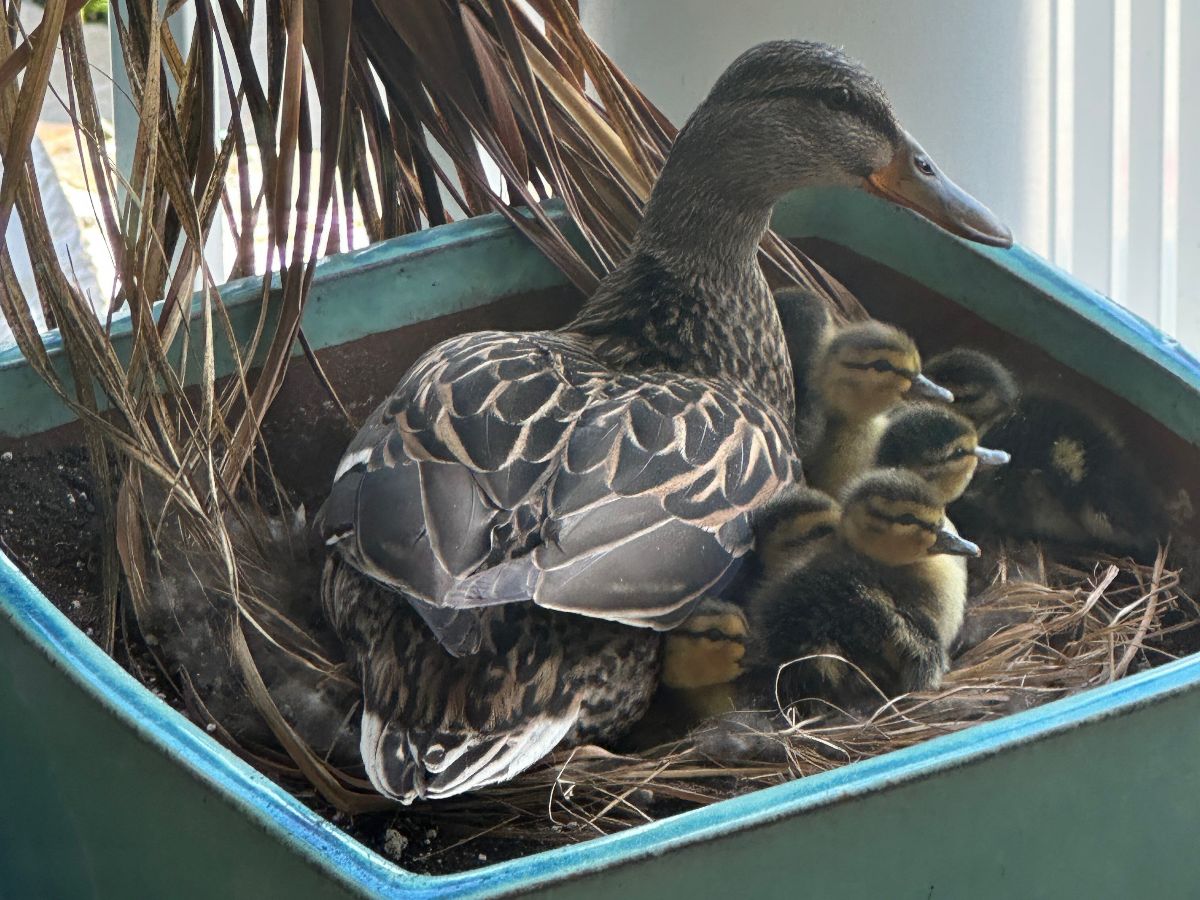eNews May 2025
May 29, 2025
May 2025 eNews
Major Milestone Completed!
If you’ve been with us for a while, you will have seen our progress reports on a massive effort to digitize the Cornell Lab’s own North American Nest Record Card Project. As of this month, we have finished integrating these historic nest records into the NestWatch database, making valuable data on bird reproductive success freely accessible to the world. More than 239,000 cards with data from 566 species are now in NestWatch, which brings our beloved Nest Quest Go! project to a satisfying close. This effort would not have been possible without the boundless support of our Zooniverse volunteers—we thank you from the bottom of our hearts!
New Research Explores Pet Fur Problems
A recent study from the UK documents some concerning findings regarding birds’ nests that contained fur in the lining. In a large sample of nests provided by participatory scientists from around the UK, 100% of the fur linings contained insecticides commonly sold as flea and tick treatments for companion animals and livestock. Higher insecticide levels were linked to poorer offspring survival. While more research is needed, we have updated our blog post on providing nesting materials for birds to reflect this new study. In short, don’t offer treated pet fur to birds as a source of nesting material.
Two New NestWatch Chapters!
Welcome Mass Audubon, based in Lincoln, MA, and Bowie Nature Park based in Fairview, TN! Find a Chapter near you.
Found a Baby Bird?
We receive many questions this time of year about baby birds out of their nests. Be prepared by reading up on what to do if you find a baby bird.
NestWatch Tip of the Month
How should you report a nest that you can’t see into easily? First, depending on how the nest is situated, there may be some tools that can help you look into the nest, such as a hand mirror, selfie stick, or binoculars. When all else fails, you have the option to enter “u” for unknown counts of eggs or young (on the app, select “Present but could not count”). In NestWatch, this means “at least one.” If you can’t say for sure whether anything is present, leave that field blank. Read our full FAQ here for more guidance on difficult nests.

Mallard and Her Ducklings
Submission of the Month
Diane Walker in New Jersey shared this Mallard mom that nested in a front porch flower pot. Diane reports that all 10 ducklings hatched and were escorted by mom to the nearest water body. Way to keep those ducks in a row! Want a chance to be featured? Be sure to submit photos with your nest visit data!
